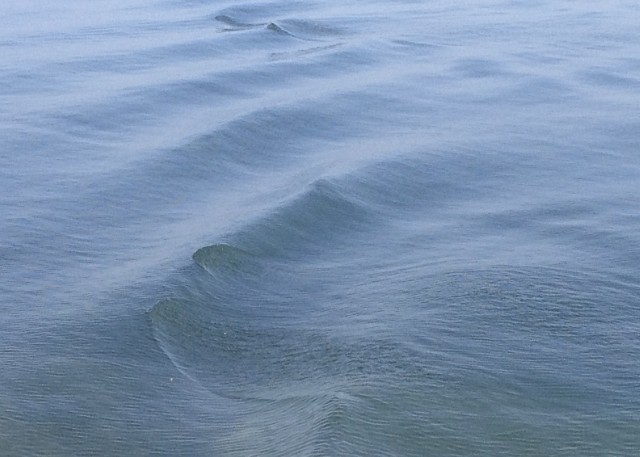
Flow
Recently, I finished another wonderful book by psychologist Mihaly Csikszentmihalyi called Creativity: The Psychology of Discover and Invention, in which he reports on a study of several highly creative individuals.
I was struck by the parallels between being creative and contemplative. Both lead to more meaningful and fulfilling lives.
Below are ten quotes on creativity from the book and how they are related to contemplation.
1. “Creativity is a process by which a symbolic domain (culture) is changed. To achieve creativity in an existing domain, there must be a surplus of attention available.” (p. 8)
Contemplation helps us simplify and focus our attention where it’s needed most.
2. “Centers of creativity tend to be at the intersection of different cultures, where beliefs, lifestyles, or knowledge mingle and allow individuals to see new combinations of ideas with greater ease.” (p. 8)
Openness to other ideas leads to possibilities.
3. “The most important message we can learn from creative people is how to find purpose and enjoyment in the chaos of existence.” (p. 20)
Through the process of simplifying, we discover what’s most important.
4. “Without a good dose of curiosity, wonder, and interest in what things are like and in how they work, it is difficult to recognize an interesting problem. Openness to experience, a fluid attention that constantly processes events in the environment is a great advantage for recognizing potential novelty.” (p. 53)
Openness and attention are fundamental.
5. “People who keep themselves busy all of the time are generally not creative. Mental meandering (walking/driving/gardening, etc.) is an essential process.” (p. 99)
A contemplative photo walk works wonders as a problem solving or creative practice.
6. “What keeps people motivated is the quality of experience they feel when they’re involved with the activity. This is called being in a flow state. The secret to a happy life is to learn to get flow from as many of the things we have to do as possible.” (p. 110-113)
Flow states happen when action and awareness merge. We are totally present. Contemplation brings us into presence.
7. “Like the beauties of nature, life-threatening conditions push the mind to think about what is essential. Occasionally, a single experience of awe provides the fuel for a lifetime of creative work.” (p. 139)
Experiencing awe or wonder doesn’t have to be a once in a blue moon event. We can have daily experiences through contemplation.
8. “We need to consciously organize our environment, not let either change or routine automatically dictate what we will do. What counts is to be a master of one’s own time.” (p. 144-145)
Only we can decide what’s most important for us – what makes us come alive. And, what’s most important for us is probably most important for the world. Joseph Campbell said, “A vital person vitalizes.” (The Power of Myth)
9. John Gardner (one of the creatives studied in the book) on human potential: “We all have much deeper reserves than we know we have and that generally it takes an outside challenge or opportunity to make us aware of what we can actually do. A lot of our potential is buried, hidden, imprisoned by fears, low self-esteem and the hold of convention.” (p. 313)
Contemplation can help us look deeper inside, listen to ourselves, see where we hold back, and face our fears.
10. “Futurist/ecologist Hazel Henderson(one of the creatives studied in the book) re-evaluated her priorities and decided it wasn’t important to get credit for what she’d been doing, it wasn’t important for her to get anywhere. What mattered was to do the best she could and enjoy it while it lasted without getting all ego-involved with success. This has given her peace of mind and she is busier than ever without feeling any stress or pain. What sustains her is a fundamental feeling for the order and beauty of nature, a calling for creating orderly and beautiful environments around her.” (p. 304)
This is humility and acceptance.
Csikszentmihalyi asks, “What can you do to build up habits that will make it possible to control attention so that it can be open and receptive, or focused and directive, depending on what your overall goals require?”
My answer? Take a contemplative photography workshop.
He ends the book by saying “If you learn to be creative in everyday life, you may not change how future generations will see the world, but you will change the way you experience it.” (p. 364)
More on Creativity and Flow
** Books mentioned have Amazon affiliate links, meaning I make a few cents if you purchase through my link. I only recommend books that I’ve read.
Mihaly Csikszentmihalyi’s TED talk on Flow
I love your image for flow. It has a beautiful lilting feel to it! I read your ten quotations with great interest and opened all your links! I even did the flow test, but didn’t want to leave my address, so I won’t know the results!
Some years ago I bought the book “Flow” by Mihaly Csikszentmihaly. At the time, I didn’t find the reading of the book flowed for me – it seemed complex. Maybe I should have another go!
Now I’m going to listen to the talk on the TED video!
I had the exact same experience with the book on flow many years ago, Sandra. I found this book to be very accessible.